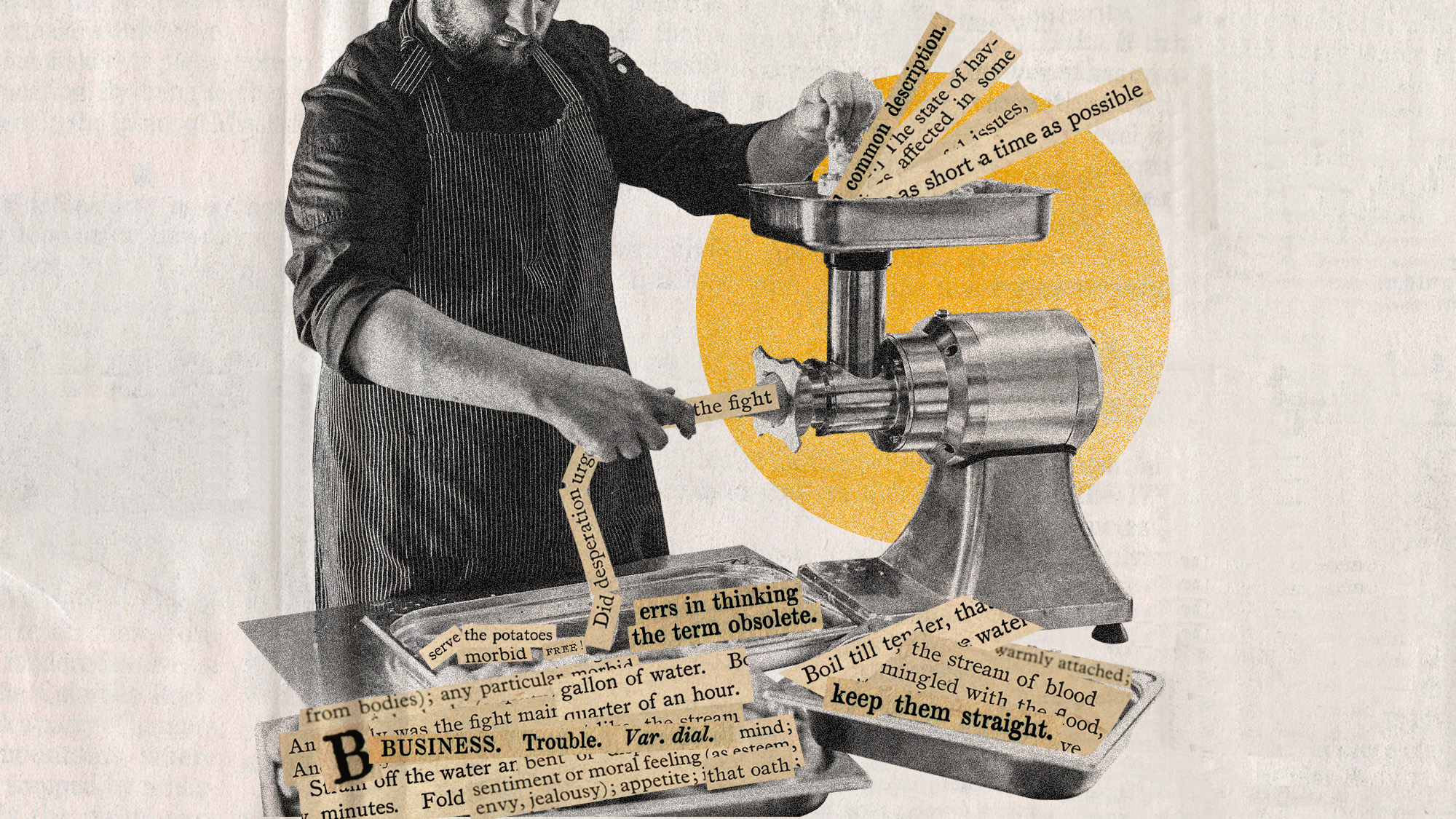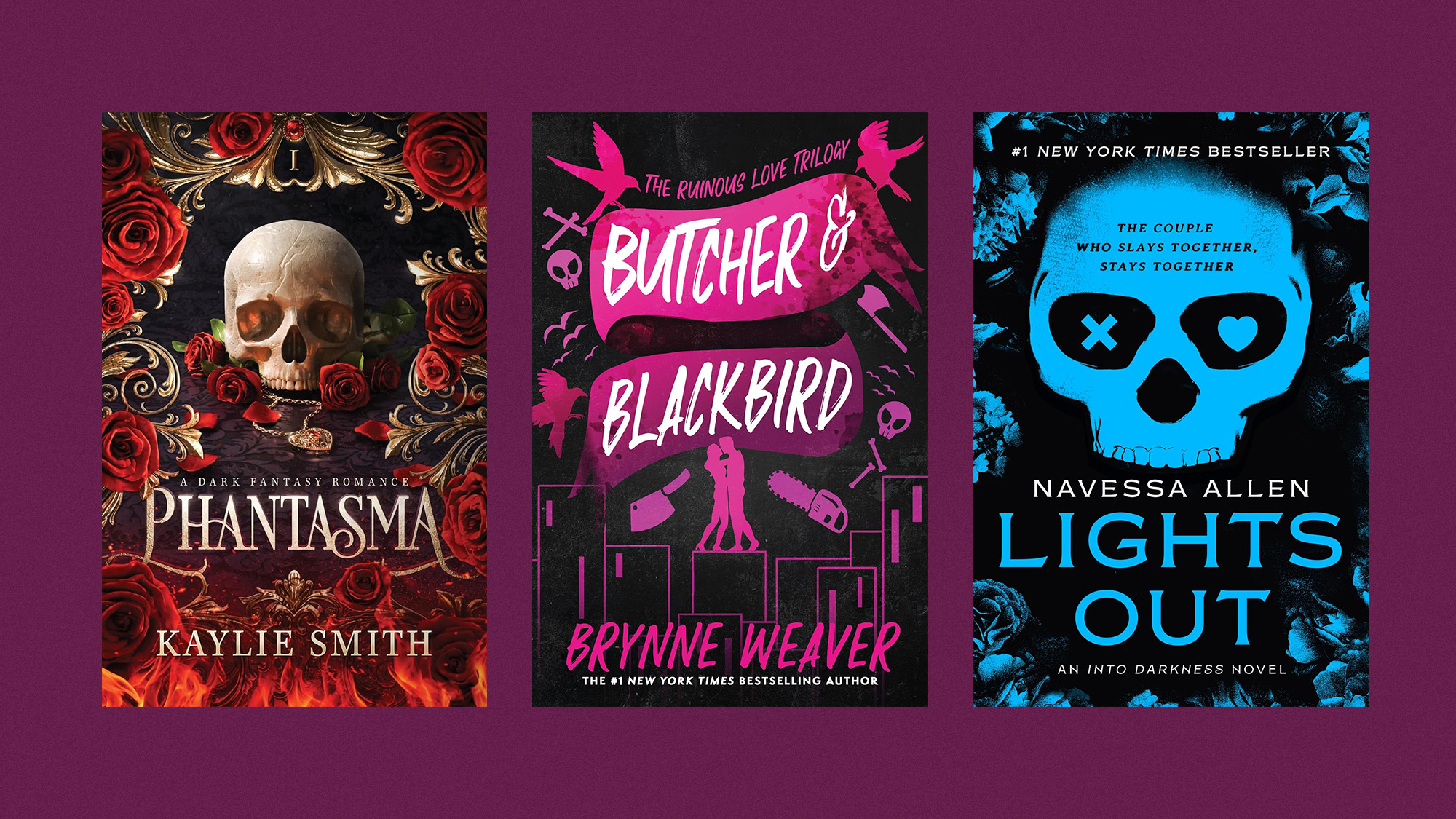Spines and the rise of AI book publishers
New publishing venture has been roundly condemned by industry figures

A free daily email with the biggest news stories of the day – and the best features from TheWeek.com
You are now subscribed
Your newsletter sign-up was successful
Book industry figures have described the team behind a publishing AI startup as "dingbats", "opportunists" and "extractive capitalists".
The new company, Spines, will charge authors between $1,200 and $5,000 to have their books edited, proofread, formatted, designed and circulated with the help of artificial intelligence, but it's already cooked up a storm in the book world.
'Empowering authors'
The co-founder of Spines, Yehuda Niv, insisted that the company "isn't self-publishing" or a vanity publisher. Niv, who previously ran a publishing services business in Israel, preferred to describe his new venture as a "publishing platform".
The Week
Escape your echo chamber. Get the facts behind the news, plus analysis from multiple perspectives.

Sign up for The Week's Free Newsletters
From our morning news briefing to a weekly Good News Newsletter, get the best of The Week delivered directly to your inbox.
From our morning news briefing to a weekly Good News Newsletter, get the best of The Week delivered directly to your inbox.
His company, which secured $16m in a recent funding round, promises to reduce the time it takes to publish a book to two to three weeks and said that authors will retain 100% of their royalties.
"Our goal is to empower authors", a spokesperson told The Guardian, because traditionally "an aspiring author usually approaches a publishing agency when 99% of authors are refused". Or authors "turn to vanity publishing and pay between $10,000 and $50,000 for a single book", or "go the route of self-publishing which requires their expertise in each task".
Spines, the representative said, is "levelling the playing field" for anyone who "aspires to be an author" to get published quickly and "at a fraction of the cost".
'Self-publishing scam'
The publishing industry has not welcomed news of Spines with much cheer. "Let's be clear", said Mary Kate Carr on AV Club, if you're spending $5,000 to have AI edit and publish your book, you're "throwing your money away". Spines "sounds like a self-publishing scam", she said, and AI tools are "not yet better than proofreaders and certainly not better than editors".
A free daily email with the biggest news stories of the day – and the best features from TheWeek.com
Spines is charging "hopeful would-be authors to automate the process of flinging their book out into the world" with "the least possible attention, care or craft", said independent publisher Canongate in a post on BlueSky, adding of the team that "these dingbats … don’t care about writing or books".
Anna Ganley, chief executive of the Society of Authors, told The Guardian that the Spines model is "very unlikely to deliver on what an author is hoping they might achieve", is "most unlikely to be their best route to publication", and "if it also relies on AI systems" there are "concerns about the lack of originality and quality of the service being offered".
The reactions from publishing folk reflect wider concerns about the role artificial industry may play in the industry going forward. Microsoft has launched its own publishing house, promising to use technology to "accelerate and democratise" publishing, which, said Carr, is "pushing forward towards a cheap, fast, AI slop future".
After the non-profit organisation National Novel Writing Month said it does not "explicitly condemn any approach", to writing including "the use of AI", author Megan Nolan wrote in the New Statesman that "I don't doubt that AI will one day be capable of writing a good or even a beautiful novel", but "the question is why anyone should want to read such a book".
AI is a "very hot-button topic", editorial consultant Anne Hervé told Times Now, and while it "can assist, human creativity and critical thinking remain essential".
Chas Newkey-Burden has been part of The Week Digital team for more than a decade and a journalist for 25 years, starting out on the irreverent football weekly 90 Minutes, before moving to lifestyle magazines Loaded and Attitude. He was a columnist for The Big Issue and landed a world exclusive with David Beckham that became the weekly magazine’s bestselling issue. He now writes regularly for The Guardian, The Telegraph, The Independent, Metro, FourFourTwo and the i new site. He is also the author of a number of non-fiction books.
-
 Political cartoons for February 15
Political cartoons for February 15Cartoons Sunday's political cartoons include political ventriloquism, Europe in the middle, and more
-
 The broken water companies failing England and Wales
The broken water companies failing England and WalesExplainer With rising bills, deteriorating river health and a lack of investment, regulators face an uphill battle to stabilise the industry
-
 A thrilling foodie city in northern Japan
A thrilling foodie city in northern JapanThe Week Recommends The food scene here is ‘unspoilt’ and ‘fun’
-
 Book reviews: ‘Hated by All the Right People: Tucker Carlson and the Unraveling of the Conservative Mind’ and ‘Football’
Book reviews: ‘Hated by All the Right People: Tucker Carlson and the Unraveling of the Conservative Mind’ and ‘Football’Feature A right-wing pundit’s transformations and a closer look at one of America’s favorite sports
-
 Book reviews: ‘Vigil: A Novel’ and ‘Fear and Fury: The Reagan Eighties, the Bernie Goetz Shootings, and the Rebirth of White Rage’
Book reviews: ‘Vigil: A Novel’ and ‘Fear and Fury: The Reagan Eighties, the Bernie Goetz Shootings, and the Rebirth of White Rage’Feature Taking on the space between life and death and a look back at a 1984 shooting that shocked New York City
-
 The best fan fiction that went mainstream
The best fan fiction that went mainstreamThe Week Recommends Fan fiction websites are a treasure trove of future darlings of publishing
-
 Book reviews: ‘The Mattering Instinct: How Our Deepest Longing Drives and Divides Us’ and ‘Family of Spies: A World War II Story of Nazi Espionage, Betrayal, and the Secret History Behind Pearl Harbor’
Book reviews: ‘The Mattering Instinct: How Our Deepest Longing Drives and Divides Us’ and ‘Family of Spies: A World War II Story of Nazi Espionage, Betrayal, and the Secret History Behind Pearl Harbor’Feature The pursuit of ‘mattering’ and a historic, devastating family secret
-
 The best dark romance books to gingerly embrace right now
The best dark romance books to gingerly embrace right nowThe Week Recommends Steamy romances with a dark twist are gaining popularity with readers
-
 Book reviews: ‘American Reich: A Murder in Orange County; Neo-Nazis; and a New Age of Hate’ and ‘Winter: The Story of a Season’
Book reviews: ‘American Reich: A Murder in Orange County; Neo-Nazis; and a New Age of Hate’ and ‘Winter: The Story of a Season’Feature A look at a neo-Nazi murder in California and how winter shaped a Scottish writer
-
 Book reviews: ‘The Score: How to Stop Playing Somebody Else’s Game’ and ‘The Sea Captain’s Wife: A True Story of Mutiny, Love, and Adventure at the Bottom of the World’
Book reviews: ‘The Score: How to Stop Playing Somebody Else’s Game’ and ‘The Sea Captain’s Wife: A True Story of Mutiny, Love, and Adventure at the Bottom of the World’Feature Comparing life to a game and a twist on the traditional masculine seafaring tale
-
 How to rekindle a reading habit
How to rekindle a reading habitThe Week Recommends Fall in love with reading again, or start a brand new relationship with it